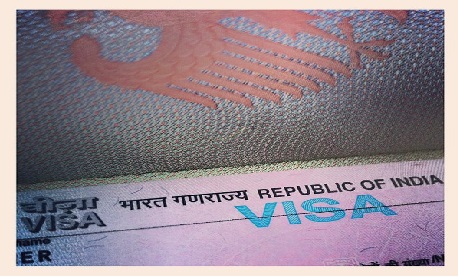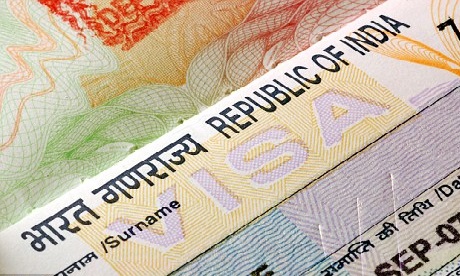Welcome to GLOBAL VISA SERVICES
Overseas Citizenship of India (OCI)
If an applicant for OCI/PIO is India born, he or she has to first surrender his or her last held Indian passport and obtain a certificate thereof. An applicant who is a foreign national by birth or who never possessed an Indian passport would be required to present the certificate issued in lieu of surrender of Indian passport of his/her parents/ grandparents on whose basis the applicant is claiming his or her Indian origin. Such certificate however, would not be needed if the passport holder on whose basis application is being attempted continues to be an Indian citizen or is deceasedBenefits of an OCI
A multiple entry, multi-purpose life long visa for visiting India. Exemption from registration with local police authorities for any length of stay in India. Parity with Non-resident Indians (NRIs) in respect of economic, financial and educational fields except in relation to acquisition of agricultural or plantation properties. Any other benefits to an OCI will be notified by the Ministry of Overseas Indian Affairs (MOIA) under Section 7B(1) of the Citizenship Act, 1955.Benefits to which OCI is not entitled to:
The OCI is not entitled to vote, be a member of Legislative Assembly or Legislative Council or Parliament, cannot hold constitutional posts such as President, Vice President, Judge of Supreme Court or High Court etc. and he/she cannot normally hold employment in the Government.OCI Scheme – for first time applicants (Frequently Asked Questions (FAQs))
Who is eligible to apply? A foreign national, who was eligible to become a citizen of India on 26.01.1950 or was a citizen of India on or at anytime after 26.01.1950 or belonged to a territory that became part of India after 15.08.1947 and his/her children and grand children, provided his/her country of citizenship allows dual citizenship in some form or other under the local laws, is eligible for registration as an Overseas Citizen of India (OCI). Minor children of such person are also eligible for OCI. However, if the applicant had ever been a citizen of Pakistan or Bangladesh, he/she will not be eligible for OCI. Who was eligible to become Citizen of India on 26.01.1950? Any person who, or whose parents or grand-parents were born in India as defined in the Government of India Act, 1935 (as originally enacted), and who was ordinarily residing in any country outside India was eligible to become citizen of India on 26.01.1950 Can the spouse of the eligible person apply for OCI? Yes, if he/she is eligible in his/her own capacity. In other words, she or he unlike PIO scheme would not be entitled to OCI only on the basis of being a spouse of an OCI card holder. The applicant has to establish his or her Indian origin separately as provided in the OCI scheme. Can Minor children apply for OCI? Yes, if either of the parents is eligible for OCI. Minor children of parents where both (father and mother) are Indian nationals would not be eligible for OCI.An amount of £130 shall be refunded, if registration is refused. £35 is the processing fee, which is non-refundable. What will be issued after registration as an OCI? A registration certificate in the form of a booklet will be issued and a multiple entry, multi-purpose OCI ‘U’ visa sticker will be pasted on the foreign passport of the applicant. For this purpose, the applicant has to present the original passport to the Indian Consulate in Birmingham after verifying the status of the application online. Will a separate OCI passport be issuedNo. Will a new OCI visa sticker be pasted on the new foreign passport after the expiry of the old passport? Yes. On payment of requisite fee, a new OCI ‘U’ visa sticker will be issued. However, the applicant can continue to carry the old passport wherein the OCI ‘U’ visa sticker was pasted along with new passport for visiting India without seeking a new visa, as the visa is life long. Will the applicant lose his citizenship after registering as an OCI? No. As only citizen of the country which allows dual citizenship under the local laws in some form or the other are eligible for applying for registration as an OCI, losing foreign citizenship does not arise. Will an OCI card holder and a UK national be debarred from accessing consular services of UK Government while in India? No, he/she would be entitled to all such services of his country whose citizenship he/she holds notwithstanding his/her registration as an OCI. Would the Indian civil/criminal laws be applicable to persons registered as OCI? Yes, for the period OCI is living in India. Can a person registered as an OCI be granted Indian citizenship? Yes. As per the provisions of section 5(1) (g) of the Citizenship Act, 1955, a person who is registered as an OCI for 5 years and is residing in India for 1 year out of the above 5 years, is eligible to apply for Indian Citizenship. Can OCI be granted to foreign nationals (who are themselves not eligible for OCI), on the basis of their marriage to persons who are eligible for OCI? No. What are the advantages of the OCI when compared to PIO cardholders? An OCI is entitled to life long visa with free travel to India whereas for a PIO card holder, it is only valid for 15 years. A PIO cardholder is required to register with local Police authority for any stay exceeding 180 days in India on any single visit whereas an OCI is exempted from registration with Police authority for any length of stay in India. An OCI gets a specific right to become an Indian Citizen whereas the PIO card holder does not. Whether an OCI be entitled to apply for and obtain a normal Indian passport which is given to a citizen of India? No. Indian Passports are given only to Indian citizen.

OCI (Lifelong Visa)
If an applicant for OCI/PIO is India born, he or she has to first surrender his or her last held Indian passport and obtain a certificate thereof. An applicant who is a..
read more...
PIO (15 Years Visa)
Any person who at any time has held an Indian passport; orHe/she or either of his/her parents or grandparents or great grandparents were born in and permanently resided ...
read more...
5 Years Tourist Visa
We are able to obtain Indian Tourist visa with fast turn-around time Indian Tourist visa is currently required by all nationalities wishing to travel to India as a .....
read more...